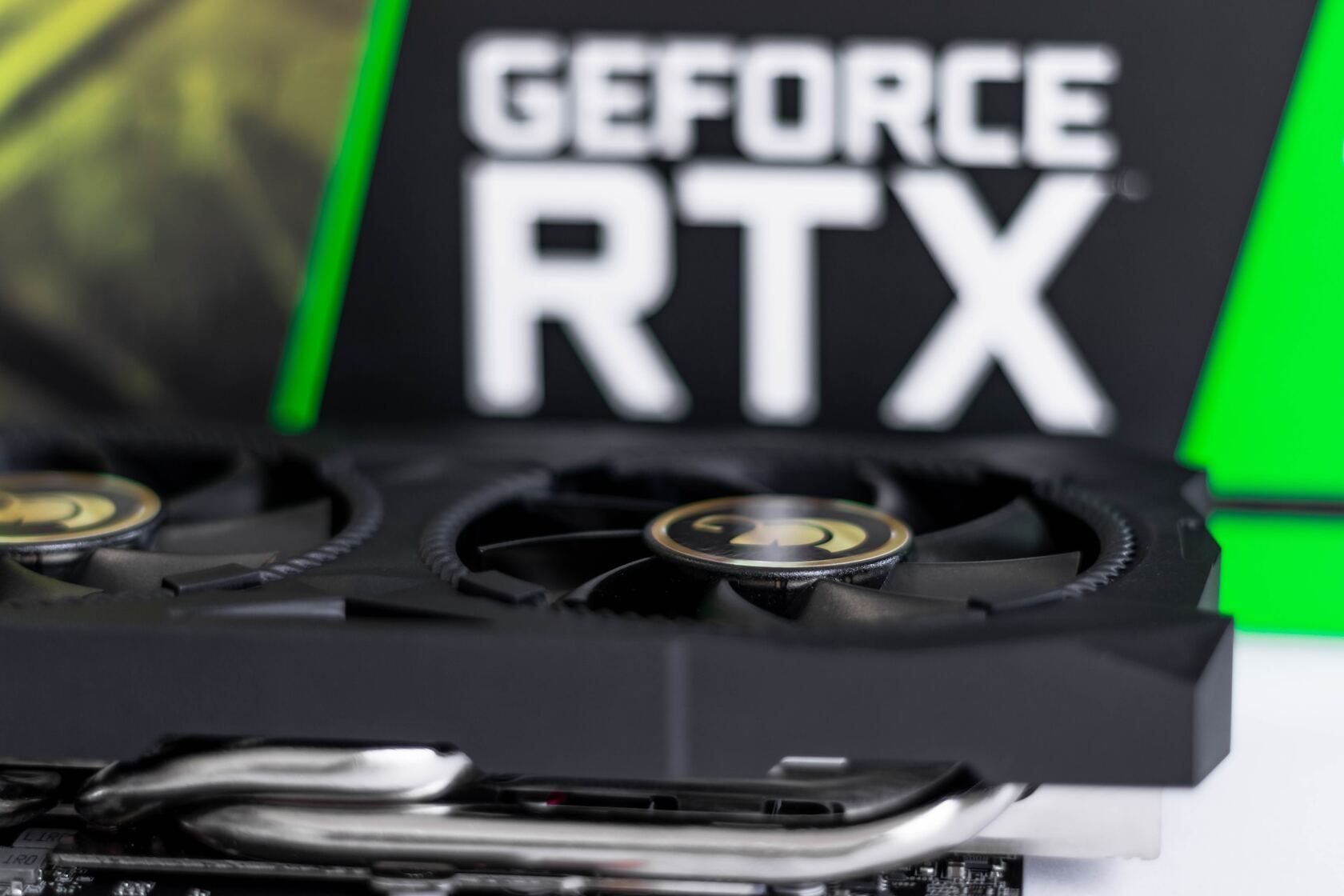
The Evolution of DLSS: Nvidia's Artificial Intelligence Update

The Evolution of DLSS: Nvidia’s Artificial Intelligence Update
Key Takeaways
- DLSS 3.5 is an upgrade of Nvidia’s DLSS technology, using AI to generate higher-quality pixels for ray-traced scenes, reducing artifacts and enhancing image quality.
- DLSS 3.5 introduces Ray Reconstruction, an AI-powered denoising algorithm that learns from millions of high-quality images to generate more accurate pixels.
- Benefits of DLSS 3.5 include improved image quality, increased performance for ray-traced games, wider compatibility with all RTX-series GPUs, and enhanced creativity for 3D editing apps. Available in fall 2023.
Nvidia’s DLSS technology has been a game-changer for PC gamers who want to enjoy the benefits of ray tracing without sacrificing performance. DLSS stands for Deep Learning Super Sampling, and it uses artificial intelligence to upscale lower-resolution images to higher resolutions with minimal loss of quality.
DLSS has been evolving since its debut in 2018, and the 2023 version, DLSS 3.5, promises to deliver even better results for ray-traced games and applications. Read on to learn what DLSS 3.5 is, how it works, and what it means for you as a gamer or a creator.
What Is DLSS 3.5?
DLSS 3.5 is the 2023 evolution of Nvidia’s DLSS technology. It introduces a new Ray Reconstruction technique that uses AI to generate higher-quality pixels for ray-traced scenes.
Ray tracing is a technique that simulates how light behaves in the real world, creating realistic shadows, reflections, and global illumination. However, ray tracing is computationally intensive and requires enormous processing power from your graphics card. That’s why Nvidia introduced DLSS, which uses AI to upscale lower-resolution images to higher resolutions while preserving or enhancing the image quality.
DLSS 3.5 takes this further by using AI to reconstruct missing or noisy pixels in ray-traced scenes. Unlike previous versions of DLSS, which used hand-tuned denoisers for each lighting pass, DLSS 3.5 uses a single neural network that can generate higher-quality pixels for any lighting pass. This means that DLSS 3.5 can reduce artifacts like color inaccuracies, inaccurate lighting, and ghosting that sometimes occur with ray tracing.
How Does DLSS 3.5 Work? What Is Ray Reconstruction?

DLSS 3.5 combines the best features of previous versions of DLSS while introducing a new technique called Ray Reconstruction. Ray Reconstruction is a novel way of using AI to improve the quality of ray tracing by generating higher-quality pixels from lower-quality ones.
Ray tracing works by casting rays of light from the camera into the scene and calculating how they interact with the objects and materials in the scene. Each ray represents a pixel on the screen, and the more rays there are, the more accurate and detailed the lighting effects are.
However, casting more rays also requires more processing power, which can reduce performance and resolution. To overcome this trade-off, ray tracing usually uses fewer rays than pixels on the screen and then uses denoising algorithms to fill in the missing pixels by averaging or interpolating the neighboring pixels.
Denoising algorithms can produce good results in some cases but can also introduce artifacts such as blurring, color bleeding, or ghosting. These artifacts can reduce the realism and immersion of ray-traced games.
Ray Reconstruction is an AI-powered denoising algorithm that uses a deep neural network to generate higher-quality pixels from lower-quality ones. Unlike conventional denoisers that use hand-tuned rules or heuristics to fill in missing pixels, Ray Reconstruction uses a data-driven approach that learns from millions of examples of high-quality images rendered by ray tracing.
It analyzes each pixel on the screen and compares it with its corresponding ray in the scene. It then uses the information from the ray to reconstruct a more accurate pixel that matches the light source’s color, brightness, and direction.
What Are the Benefits of DLSS 3.5?
Older versions of DLSS compete favorably inupscaling comparisons . However, it offers even more benefits for gamers and creators who use ray tracing in their games and apps. Here are some of them:
- Improved Image Quality: DLSS 3.5 can producehigher-quality images than DLSS 3 by using more data and a more advanced AI network. DLSS 3.5 can also preserve more details and avoid artifacts that can occur with ray tracing, such as inaccurate lighting, color bleeding, or noise.
- Increased Performance: DLSS 3.5 can boost ray-traced games’ frame rate and resolution by reducing the GPU load and upscaling the image efficiently. DLSS 3.5 can also provide a greater performance benefit for path-traced games, which use ray tracing for all aspects of the scene, such as shadows, reflections, refractions, global illumination, and ambient occlusion.
- Wider Compatibility: DLSS 3.5 will work with all RTX-series GPUs, not just the latest RTX 40-series GPUs. This means that more gamers will be able to enjoy the advantages of DLSS 3.5 in their favorite ray-traced games.
- Enhanced Creativity: DLSS 3.5 will also be available for creators who use ray tracing in their 3D editing apps, such as Chaos Vantage, D5 Render, and Nvidia Omniverse. DLSS 3.5 will help them create higher-quality and more accurate render previews in these apps, saving them time and resources.
As you can see, DLSS 3.5 is a comprehensive upgrade from DLSS 3.
When Will DLSS 3.5 Be Available?
Nvidia says that DLSS 3.5 will be available in the fall of 2023, but it hasn’t given a specific date yet. Nvidia also hasn’t revealed which games will support DLSS 3.5 at launch, but we can expect some of the upcoming titles that use ray tracing or path tracing, such as Cyberpunk 2077 and Alan Wake 2, to be among the first ones.
Also read:
- [Updated] 2024 Approved Customizing Your Watch The Art of Altering YouTube Video Pace
- [Updated] In 2024, FPS Fanatics' Compendium Selecting Superior Extensions
- 3uTools Virtual Location Not Working On Motorola Moto G 5G (2023)? Fix Now | Dr.fone
- Efficient Control of Xbox Live Gold on XS
- Elevate Your Content Secrets to Becoming a Staff Favorite at Vimeo
- Free Games That Don't Cost a Dime: Our Top 6
- How to Install an SD Card on Your Steam Deck
- How to Show Wi-Fi Password on Oppo K11 5G
- In 2024, Understanding the Advanced Features in DJI's Quadcopter 3
- Quick Fix for ERR TOO MANY REDIRECTS – Easy Steps Inside!
- Savvy Spending on Inexpensive Gamer Tech Boards
- Steps to Overcome Steam Content Unavailable Error
- Unlocking Audio Advantage with Proficient Use of HRTF in Valorant
- Updated 2024 Approved FCP Audio Editing Essentials A Step-by-Step Guide
- Title: The Evolution of DLSS: Nvidia's Artificial Intelligence Update
- Author: William
- Created at : 2024-12-06 06:47:13
- Updated at : 2024-12-11 05:34:46
- Link: https://games-able.techidaily.com/the-evolution-of-dlss-nvidias-artificial-intelligence-update/
- License: This work is licensed under CC BY-NC-SA 4.0.